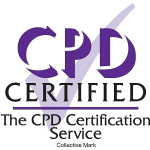Professional Diploma in Transformational Leadership

Professional Diploma in Transformational Leadership
Program Learning Outcomes:
What makes a truly transformational leadership program? We would say it’s one that helps you to:
- Lead effectively with your own style
- Influence people with impact
- Manage change and complexity in a way that is convincing to others
- Communicate clearly a winning vision for your organization
Professional Certification / Accreditation:
The CPD Certification Service, United Kingdom

Programme Synopsis:
Transformational leadership programs can help even experienced executives to be better leaders. Indeed, in an increasingly complex business environment, transformational leadership skills can make all the difference in how well you can lead your team and rise to meet evolving challenges.
A good transformational leadership program will focus on honing the skills you need to consistently deliver outstanding performance. It will help you reach the next level of effectiveness while leading individuals, teams and large groups
This training program is designed to help you return to the office the following day ready to implement those ideas with passion and rigour.
Assessments:
Formative:
- Case study presentation, with verbal questions and answers / quiz
- Assignment
- Coaching
- Group presentation
- Individual / Pair presentation
Summative
- 70% Assignment
- 30% Presentation
Entry Requirements:
- Experienced professionals with 7 or more years’ work experience
- A basic Degree
Experienced and new executives can benefit from diagnosing their leadership tasks and seeking advice on how to maximize their decision-making. The leadership programs that make a difference are those that improve your self-awareness and challenge your belief systems. You should be able to go back to your own roots and find out more about what makes you the leader you are. The best programs help you develop a leadership path that ensures you will be inspired for the long-term.
MODULES
Key Concepts
Leadership can be defined as one’s ability to influence and motivate others – to bring the best out in them. It focuses on encouraging individuals to add more to the overall effectiveness of an organization.
Leadership is often defined as a process wherein an individual influences and encourages others to achieve organizational objectives, and directs the organization so that it becomes more coherent and cohesive to work in. This module will primarily focus on:.
- Levels of leadership
- Leadership versus Management
Key Concepts
Demonstrates self-awareness through accurate assessment and management of one’s own attitudes and belief systems. Draws on personal and professional strengths as well as areas for personal development to build your capacity.
Examine your leadership journey
It’s a process of examining Your Leadership Journey via these self-analysis tools:
- Leadership Journey Map
- Maslow’s Hierarchy of Needs
- The Wheel of Life
Discover your leadership style
- Becoming more self-aware by benefiting from honest feedback
- Clarifying and living your values, while establishing ethical boundaries
- Understanding your motivations and capabilities, and finding the point where they align
Action
- Identifying your purpose and establishing it as a cornerstone of your leadership approach
- Developing your Big Rocks and prioritizing them
Key Concepts
Building teams, improving teamwork and collaboration, sustaining team performance, and aligning individual and team goals. This module will primarily focus on:
- Leading teams requires both style and focus. Your style suggests how you engage with people; your focus – what you want to achieve
- Approaches in profiling and coaching teams
- Developing a high performing team
Key Concepts
Real change management requires more than just changing behaviour — it is dependent upon the culture, environment and change management process.
Leading others through change effectively is a key leadership capability because it enables organizations to accelerate change initiatives and involve the entire organization in identifying, implementing, and sustaining important change initiatives that will ensure the organization’s long-term success. Focus areas include:
- Development of change agents
- Communication approaches
- Accountability
- Learning and development
Key Concepts
Stakeholder engagement and management. To improve collaboration with the Board of Directors, and the community. This module will primarily focus on:
- Stakeholder Analysis
- Type of stakeholders in the organization (primary and secondary)
- Roles and objectives of stakeholders
- Strategies to engage stakeholders (Board stakeholder management, Service Level Agreement (SLA), etc.)
Overview
Total Modules:
Five (5) Modules
Program Duration:
Three (3) months
Total Student Learning Approach – Blended Approach:
- 5 days of lecture / discussion / presentation – In-person
- 3 months to complete assignments and graduate – Offline

